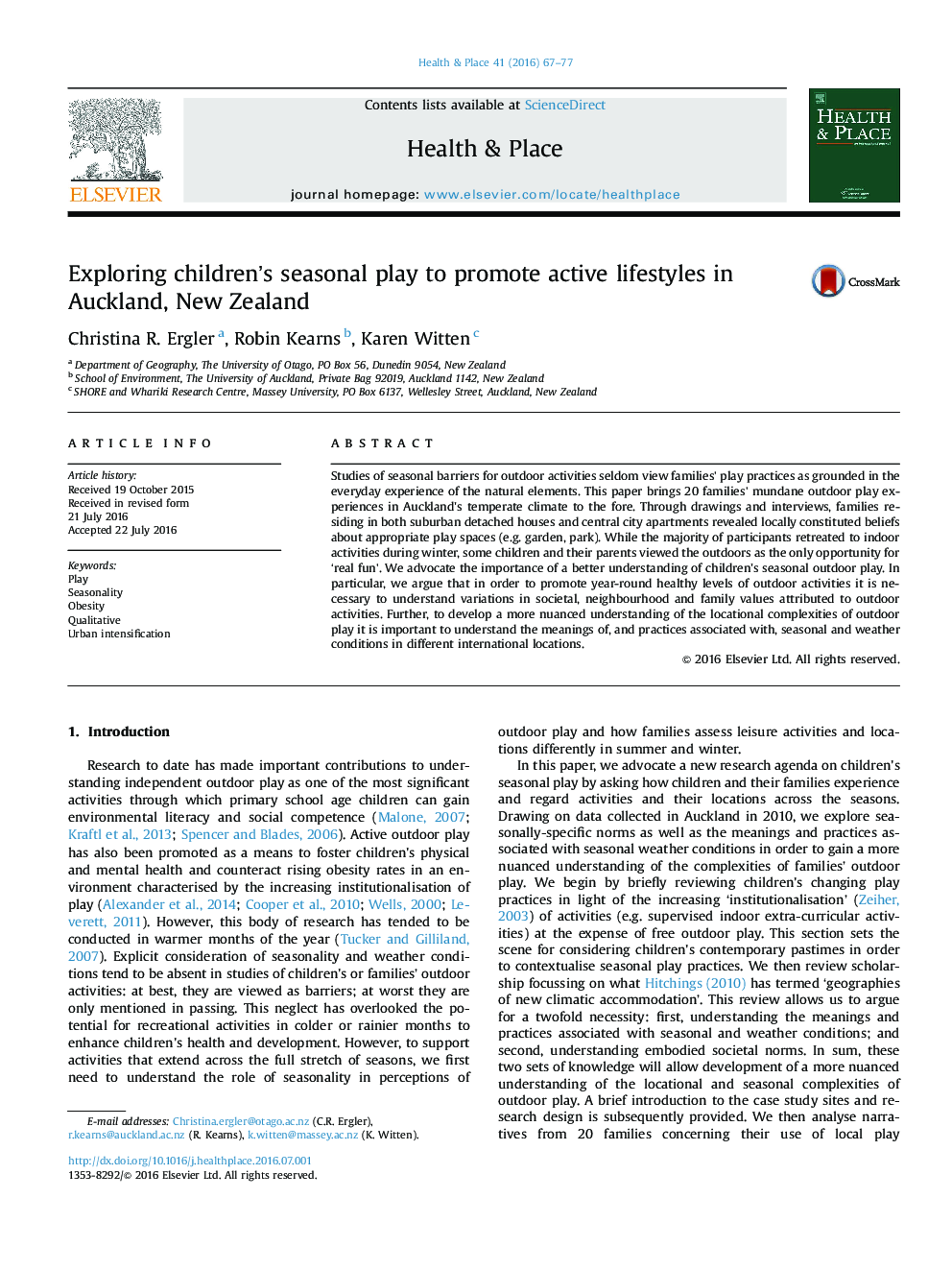| Article ID | Journal | Published Year | Pages | File Type |
|---|---|---|---|---|
| 1048567 | Health & Place | 2016 | 11 Pages |
Studies of seasonal barriers for outdoor activities seldom view families’ play practices as grounded in the everyday experience of the natural elements. This paper brings 20 families’ mundane outdoor play experiences in Auckland's temperate climate to the fore. Through drawings and interviews, families residing in both suburban detached houses and central city apartments revealed locally constituted beliefs about appropriate play spaces (e.g. garden, park). While the majority of participants retreated to indoor activities during winter, some children and their parents viewed the outdoors as the only opportunity for ‘real fun’. We advocate the importance of a better understanding of children's seasonal outdoor play. In particular, we argue that in order to promote year-round healthy levels of outdoor activities it is necessary to understand variations in societal, neighbourhood and family values attributed to outdoor activities. Further, to develop a more nuanced understanding of the locational complexities of outdoor play it is important to understand the meanings of, and practices associated with, seasonal and weather conditions in different international locations.
